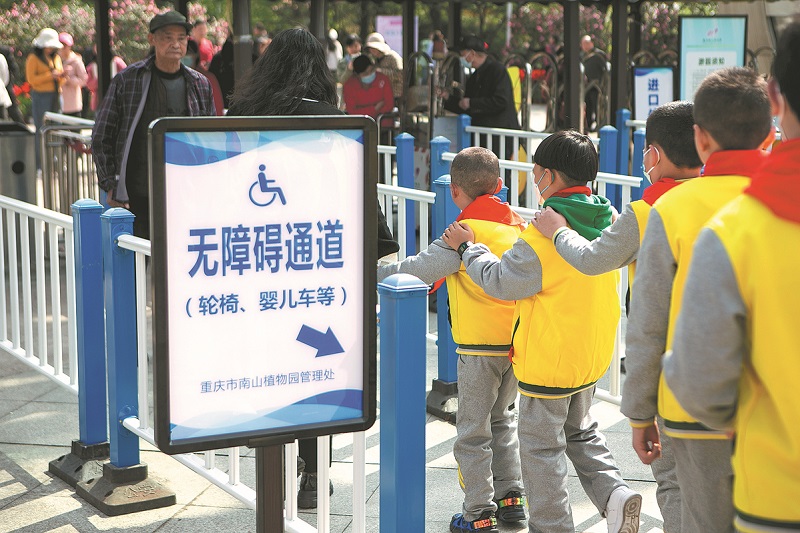Life made easier for those facing difficulties

Students with impaired vision use a barrier-free entry point to visit a botanical garden in Chongqing. CHU JIAYIN/XINHUA
Best example
In Beijing, Liao Juan, an associate professor at Capital Normal University's School of Management, said the law closely addresses the demands and expectations of the elderly and the disabled in terms of system design, establishing standards, and construction requirements.
She said the process of formulating the law is the best example of how the nation's top legislature responds to public needs.
To implement the law and make it work effectively, the Ministry of Industry and Information Technology said it will give stronger support to technological innovation in constructing accessible services.
The use of new technologies to guide the blind, along with voice control and speech recognition, will be encouraged, the ministry said, adding that it will also require enterprises to "bridge the digital gap" to ensure the elderly and disabled enjoy technological convenience.
The China Disabled Persons' Federation has promised to organize visits to accessible facilities and provide feedback to relevant departments.
The federation also said it will compile and publish more books in Braille and provide versions for those with poor vision.
- Top legislature schedules standing committee session for late February
- China's top legislator meets with Uruguayan president
- Senior legislator surveys Anhui on formulating outline of provincial 15th Five-Year Plan
- China's top legislator meets with British PM
- NPC deputies see more engagement with top court



